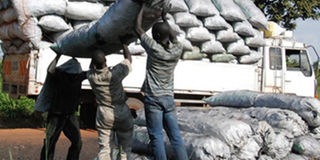Let’s promote use of clean energy

On March 5, I participated in a regional NGO meeting organised by the Office of the Prime Minister to review the Peace, Recovery and Development Plan (PRDP) for Uganda. Indeed, we need more of such meaningful engagement between government and the citizens.
At a meeting for the regional NGO Forum for northern Uganda, a government official commented that “many people are advocating that government should cut back taxes on gas and yet gas is used by only a small percentage of the population (mainly urban dwellers) and so cutting back taxes on gas will benefit a few and will have little impact.’’
I agree with him that cutting taxes on gas will benefit mainly the urban dwellers and will have little impact.
However, what if gas was subsidised such that it becomes cheaper than charcoal and firewood? Will it only benefit a few?
I don’t think so! The reason there are few people using gas is because gas is very expensive! This can also be explained by the law of supply and demand, where the cheaper the price of a commodity, the higher the demand. And the more expensive a commodity is, the lower the demand.
Should the government subsidise the price of gas hence make it cheaper than charcoal and firewood, even the rural population will begin to use it.
According to statistics by Uganda Bureau of Statistics (Ubos), the urban population consists of 9.7 million people (25 per cent) and the rural population consists of 21.1 people (75 per cent) out of 38.8 million people in Uganda as per 2018 report. Currently, Uganda is facing acute challenge of indiscriminate cutting of trees.
According to State of Uganda Forestry report 2015, about 96 per cent of the population rely on biomass - firewood and charcoal hence escalating the rate of deforestation across the country.
The report further reveals that 18 per cent of households depend on charcoal for cooking while another 78 per cent depends on firewood, totalling to 96 per cent. Only 4 per cent of the population accesses gas, kerosene and electricity.
According to rainforest mongabay.com, from 2001-2018, Uganda lost up to 742,268 vegetation cover resulting to 12 per cent of the forest cover lost. At this rate, the environment is increasingly being devastated. And given this trajectory, it is just a matter of time before it culminates into desertification.
Currently, the government and civil society organisations are trying to rehabilitate our environment. But all these efforts shall be jeopardised if the citizens are not granted an alternative energy supply source.
Therefore, I appeal to government to subsidise the price of gas and electricity to Ugandans as alternative energy supply sources in order to save our environment for posterity.




